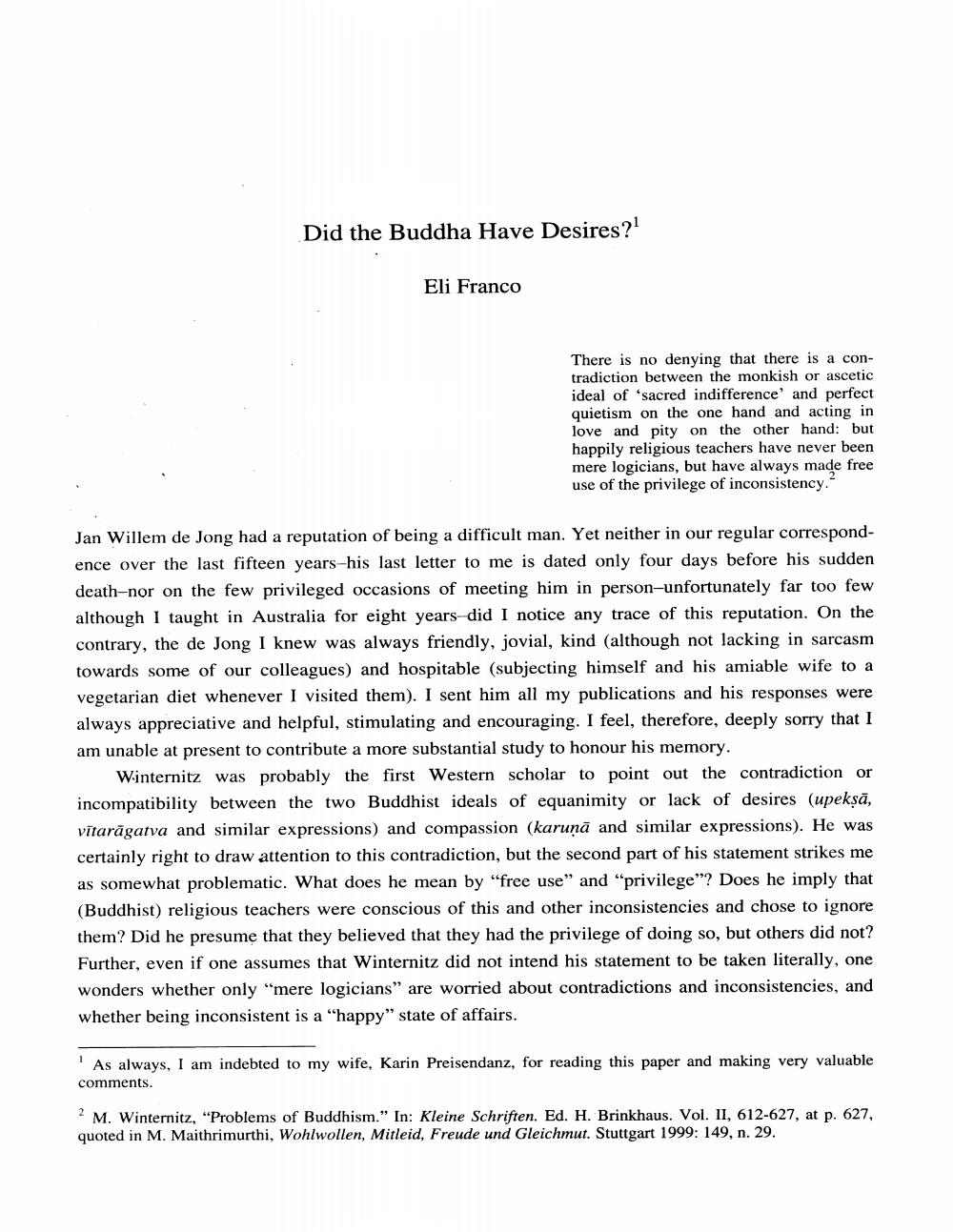Book Title: Did Buddha Have Desires Author(s): Eli Franco Publisher: Eli Franco View full book textPage 1
________________ Did the Buddha Have Desires?! Eli Franco There is no denying that there is a contradiction between the monkish or ascetic ideal of 'sacred indifference and perfect quietism on the one hand and acting in love and pity on the other hand: but happily religious teachers have never been mere logicians, but have always made free use of the privilege of inconsistency. Jan Willem de Jong had a reputation of being a difficult man. Yet neither in our regular correspondence over the last fifteen years-his last letter to me is dated only four days before his sudden death-nor on the few privileged occasions of meeting him in person-unfortunately far too few although I taught in Australia for eight years-did I notice any trace of this reputation. On the contrary, the de Jong I knew was always friendly, jovial, kind (although not lacking in sarcasm towards some of our colleagues) and hospitable (subjecting himself and his amiable wife to a vegetarian diet whenever I visited them). I sent him all my publications and his responses were always appreciative and helpful, stimulating and encouraging. I feel, therefore, deeply sorry that I am unable at present to contribute a more substantial study to honour his memory. Winternitz was probably the first Western scholar to point out the contradiction or incompatibility between the two Buddhist ideals of equanimity or lack of desires (upekṣā, vītarāgatva and similar expressions) and compassion (karunā and similar expressions). He was certainly right to draw attention to this contradiction, but the second part of his statement strikes me as somewhat problematic. What does he mean by "free use" and "privilege"? Does he imply that (Buddhist) religious teachers were conscious of this and other inconsistencies and chose to ignore them? Did he presume that they believed that they had the privilege of doing so, but others did not? Further, even if one assumes that Winternitz did not intend his statement to be taken literally, one wonders whether only "mere logicians" are worried about contradictions and inconsistencies, and whether being inconsistent is a “happy" state of affairs. As always, I am indebted to my wife, Karin Preisendanz, for reading this paper and making very valuable comments. 2 M. Winternitz, "Problems of Buddhism." In: Kleine Schriften. Ed. H. Brinkhaus. Vol. II, 612-627, at p. 627, quoted in M. Maithrimurthi, Wohlwollen, Mitleid, Freude und Gleichmut. Stuttgart 1999: 149, n. 29.Page Navigation
1 2 3 4 5 6 7 8 9
